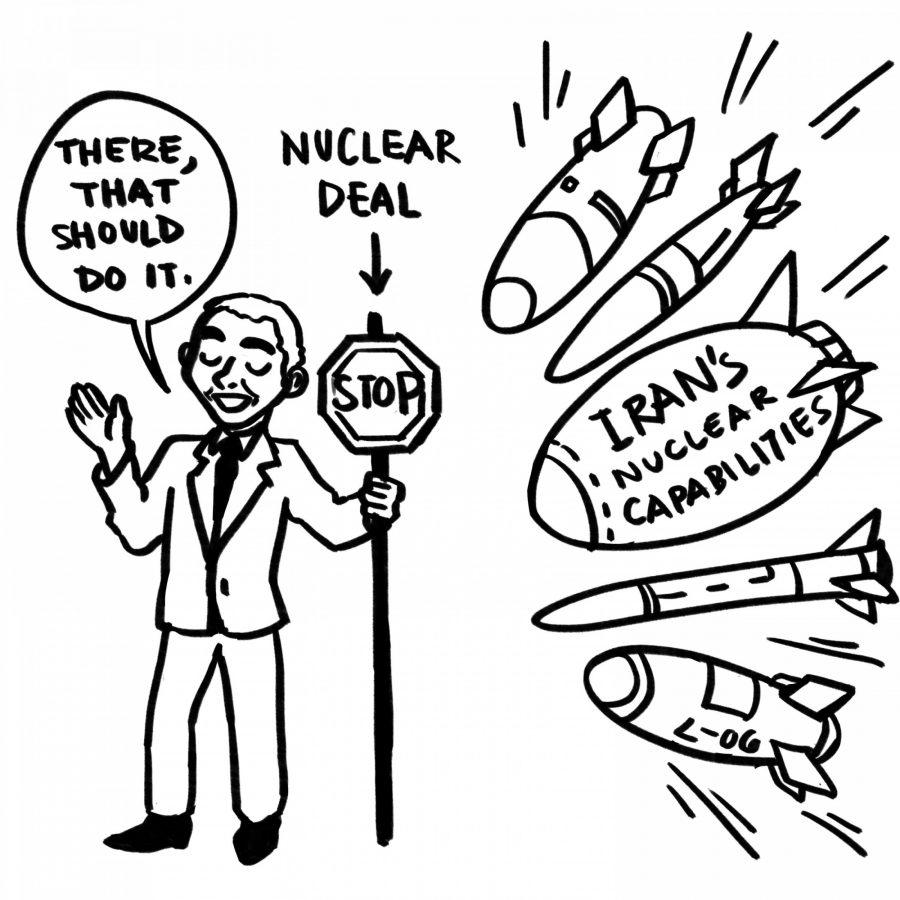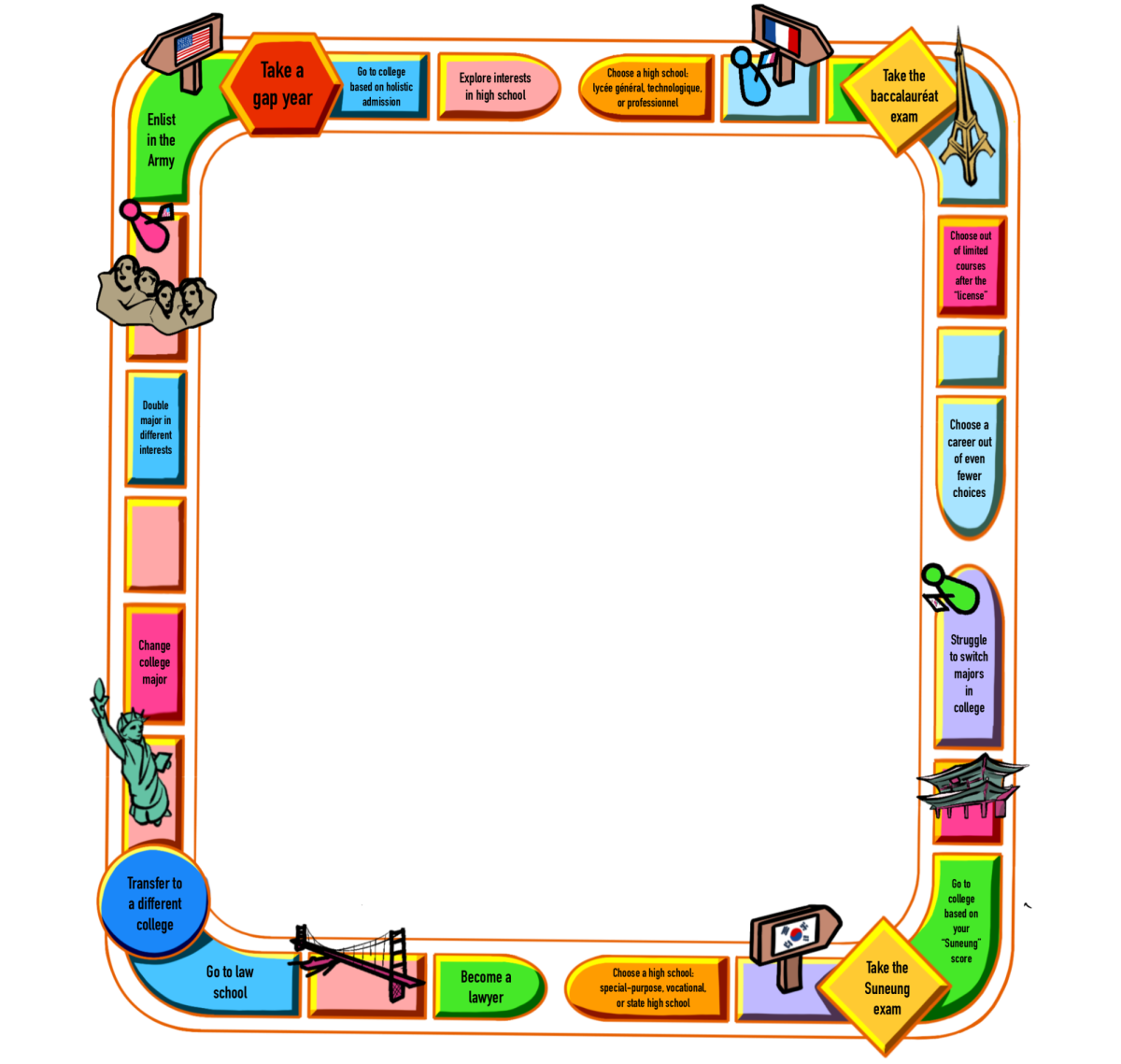Written by Matthew Hamilton
Published in the September 11, 2015 issue
As primary candidates compete in the 2016 presidential election, a treaty that could fundamentally change U.S. foreign policy quietly makes its way through Congress. This agreement, negotiated by President Barack Obama and Sec- retary of State John Kerry with Iran and five other nations, is being pushed through Congress to be trumpeted as Obama’s victory in the Middle East. However, Congress should reject the Iran nuclear agreement because the enforcement of the deal is not guaranteed, and once the deal expires, Iran will have the freedom to pursue nuclear weapons. Congress should instead push for a deal with longer term sanctions and stringent enforcement.
Under the deal, Iran must transform its uranium enrichment plant, Fordado, into a center for scientific research. Moreover Iran must rebuild its Arak reactor so it cannot create weapons-grade plutonium.
The current limitations are strong, but the problems of the deal become apparent when one examines the timeframe and enforcement of the deal. Once the deal expires in 15 years, the U.S. can only watch if Iran chooses to pursue nuclear weapons. The U.S. and five other nations have embargoes in place against Iran that prevent economic growth and the purchase of weapons from other nations. Sanctions, the most effective tool in preventing Iran from pursuing a nuclear bomb, have reduced the gross domestic product (GDP) of Iran by 15 percent to 20 percent, according to Treasury Secretary Jack Lew. Under the existing deal, sanctions will be lifted once the International Atomic Energy Agency (IAEA) certifies that Iran has restricted its nuclear capabilities. As a result, Iran will immediately have access to $150 billion from previous oil sales, expanding the Iranian economy by seven percent. The United Nations (U.N.) will also lift its ban on Iran’s importing weapons systems, which will allow Iran to purchase ballistic missiles.
Once the sanctions are lifted, Iran will have a stronger economy and national defense. This leaves the U.S. with little economic leverage to prevent Iran from pursuing nuclear weapons after the 15-year deal expires. Iran would have the economic and military strength to make a nuclear bomb in a few weeks according to the Brookings Institute, and new sanctions would not be able to stop a strong economy in a matter of weeks. This would increase the chance of military conflict if Iran were to acquire weapons, and a conflict would be more deadly because of the enhanced missile defense systems that Iran would be able to buy. It is not guaranteed that Iran will pursue a nuclear weapon, but it is probable given its history. In 2003, Europe negotiated a deal similar to the current one, only to be disappointed when Iran violated the deal by revamping nuclear weapons the very next year. It would be a mistake to repeat the failures of the past. By implementing President Obama’s proposal, the U.S. is only increasing the chances of war 15 years from now.
One would hope that IAEA checks would make nuclear activity impossible if the deal passes. The checks, however, do not ensure complete compliance. The IAEA does not have full access to Iranian nuclear facilities under the deal, as Iran has 24 days to open its facilities for foreign inspection once notified by the IAEA. If Iran does not comply, the sanctions are put back in place. This seems like a secure safety net, but to put the sanctions back in place, the U.S. would have to go through the U.N. Security Council where two members, China and Russia, already side with Iran. Essentially, Iran can violate the deal, and the U.S. will have no economic or diplomatic tools to stop them.
Supporters of the agreement argue that this deal is better than no deal at all, but this argument is flawed because it is encouraging a trade-off between peace today and peace tomorrow. Currently it would take Iran two to three months to make a bomb. The U.S. would have time to impose harsher sanctions, and military action would be easier because Iran would not have missile systems to protect itself. Any deal passed must not trade stability now for a likelihood of violence in the future.
Instead of forfeiting all peaceful tools to restrict Iran’s nuclear capability for a deal with lackluster enforcement, Congress should reject the agreement and demand a deal that lasts longer than 15 years with stronger enforcement. Lawmakers must make sure an alternative deal allows the IAEA access to any of Iran’s nuclear facilities at anytime.
The U.S. sits at a crossroads in its foreign policy. It could either pass a deal almost ensuring the need for future military engagement, or it could solve the Iran issue with a longterm deal with stricter enforcement. For the safety of citizens at home and the international community, it is imperative Congress favors the latter.












